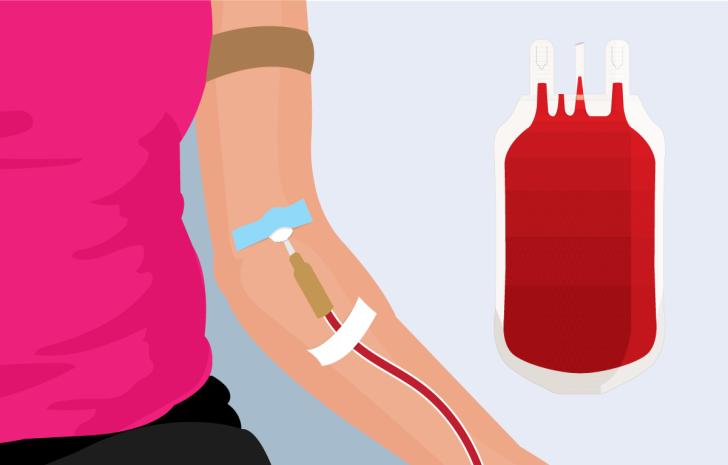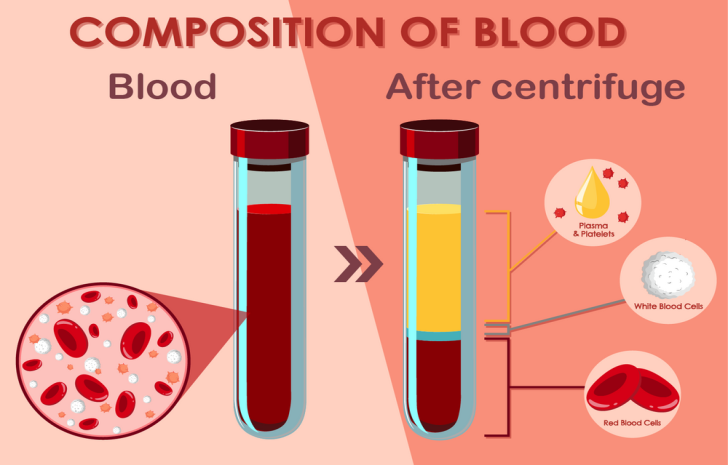
The Lifesaving Act: How Often Can You Donate Blood?
Introduction
Blood donation is a noble act that has the power to save lives. It's a simple yet profound way to give back to your community and make a positive impact on the lives of those in need. Whether you're a seasoned donor or someone considering it for the first time, you might wonder, "How often can you donate blood?" In this blog, we'll delve into the importance of regular blood donation, the eligibility criteria, and how frequently you can donate to help those in need.
The Lifesaving Power of Blood Donation
Blood is a precious resource that cannot be manufactured or replicated. It plays a crucial role in modern medicine, helping individuals undergoing surgery, cancer treatments, and those recovering from accidents or illnesses. The demand for blood is constant, and there's a need for regular donations to ensure an ample supply for medical facilities and patients.
How Often Can You Donate Blood: While the need for blood is ongoing, the frequency at which you can donate depends on various factors. The most common blood donation type is whole blood, and in most cases, you can donate whole blood every 56 days (8 weeks). Platelet donation, on the other hand, can be done more frequently, allowing donors to give every 7 days, up to 24 times a year.

Who Is Eligible to Donate Blood?
Blood donation is a selfless act, but not everyone is eligible to donate. There are specific criteria in place to ensure the safety of both the donor and the recipient. To be eligible, donors must meet the following requirements:
Age: Typically, donors must be at least 16 years old, although the minimum age may vary by country. Donors aged 16 to 17 often have additional requirements and may need parental consent.
Weight: Donors need to meet specific weight criteria, generally around 110 pounds or 50 kilograms.
Health: Donors should be in good health on the day of donation, without symptoms of illness or infection.
Travel and exposure: Some travel destinations may disqualify you from donating blood due to potential exposure to diseases like malaria. Be sure to disclose recent travel when asked.
Medications: Certain medications can affect your eligibility to donate. Be prepared to discuss your medications with the medical staff.
Lifestyle choices: Some lifestyle choices, like recent body piercings or tattoos, may affect your eligibility. In some cases, you might need to wait before donating.
How Often Can You Donate Blood: Your eligibility to donate is not limited by the frequency with which you can donate. However, adhering to the recommended donation intervals ensures your body has enough time to recover and regenerate the components of your blood, making the donation safe for you and effective for the recipients.

The Benefits of Regular Blood Donation
Donating blood doesn't just benefit the recipients; it also has positive effects on the donors themselves. Here are some of the advantages of making blood donation a regular part of your life:
Saving Lives: The most obvious benefit is the opportunity to save lives. A single donation can help multiple people, as blood can be separated into various components, such as red blood cells, platelets, and plasma.
Health Screening: Each time you donate blood, you receive a mini health checkup. Your blood is tested for various infections and diseases, which can sometimes help you detect health issues early.
Red Blood Cell Renewal: Regular donations stimulate the bone marrow to produce new red blood cells, which can improve overall health.
Lowering Iron Levels: Iron is a vital mineral, but excessive levels can be harmful. Blood donation helps regulate iron levels in the body.
Stress Reduction: The act of giving back and helping others can reduce stress and improve your emotional well-being.
How Often Can You Donate Blood: The benefits of regular blood donation are clear, and while you can donate frequently, it's essential to follow the guidelines set by your local blood donation organization.
Tips for a Successful Blood Donation
Donating blood is a straightforward process, but there are a few steps you can take to ensure a successful donation experience:
Hydrate: Drinking plenty of water before your donation can help improve blood flow and make the process more comfortable.
Eat Well: Having a healthy meal before donating can prevent dizziness or fainting.
Rest: Get a good night's sleep before your donation to ensure you're well-rested.
Bring ID: Don't forget to bring a valid ID, as you may need it to confirm your identity.
Relax: Take a deep breath and relax during the donation process. The staff is there to support you and ensure a safe experience.

How to Find a Blood Donation Center
Finding a blood donation center in your area is easier than ever, thanks to online resources and mobile apps provided by many blood donation organizations. Here's how you can locate a center near you:
Online Search: Use search engines to find blood donation centers in your area. Most organizations have websites with location finders.
Mobile Apps: Many blood donation organizations have mobile apps that provide information about nearby donation centers, upcoming blood drives, and appointment scheduling.
Social Media: Follow blood donation organizations on social media to stay updated on their activities and locations.
Conclusion
Blood donation is a selfless act that has a profound impact on the lives of those in need. The question is, Regular blood donation benefits both recipients and donors and contributes to a healthier and more compassionate society. So, consider donating blood regularly, and you'll not only be saving lives but also reaping the personal rewards of giving back to your community.
